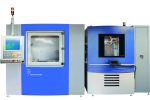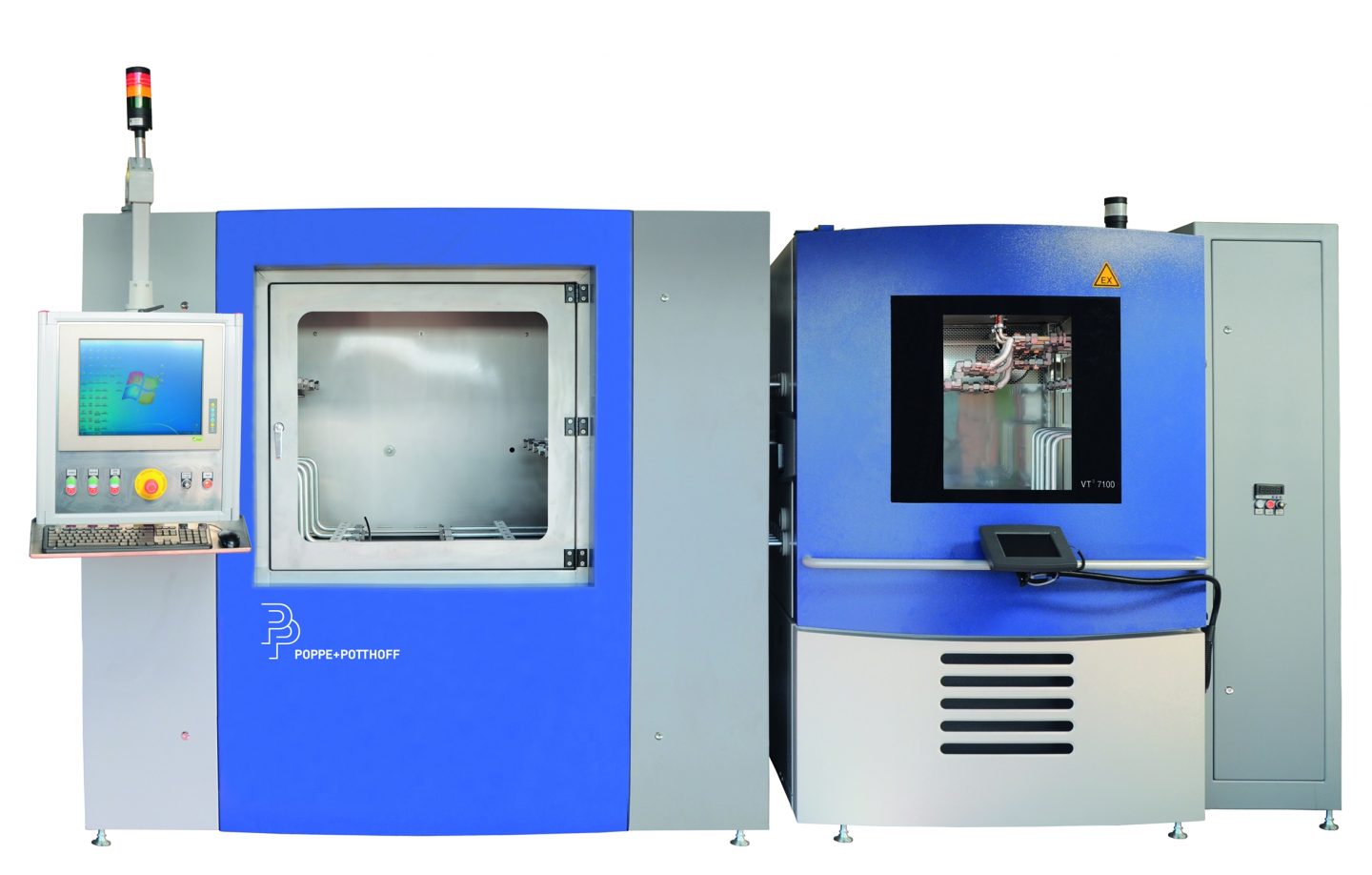Hoses are the lifeline of the car. For example, they feed the coolant to the motor and make sure that when stepping on the pedal, the car brakes securely. They must withstand frequently changing pressure and endure high thermal, chemical and mechanical loads. The automobile industry therefore places high demands on the reliability of medium transporting components. These components are tested comprehensively with the new pressure pulsation test system from Poppe + Potthoff Maschinenbau.
For pressure pulsation, long-term pressure and burst pressure tests, the system offers two chambers, where up to ten test specimens respectively can be tested simultaneously at an ambient temperature of -40°C to +180°C or indoor climate. The medium –Glycol 100 % or different oils – is delivered via separate control circuits at a temperature of -40°C to +160°C. This makes tests at very high temperature differences possible, which are quite rare in reality, even with hardness tests on the race track of the Nürburgring, in the Siberian Tundra or in the African deserts.
Servo-hydraulic pressure relieve valves, optimally designed for each test range, allow very precise control of the pressure. Pressure pulsation tests can be run with a frequency of 0-10 Hz (usual are 0.5-2.5 Hz) for the trapezoid curve with 4-25 bar and 0-160 bar, for the sinus curve with a frequency of 0-10 Hz, pressures of 0-6 bar are possible. The maximum burst pressure is 500 bar. Measurement data logging and visualisation are conducted with LabVIEW applications from National Instruments. All testing procedures and data are stored automatically on the system and can be exported into the network for evaluation.


